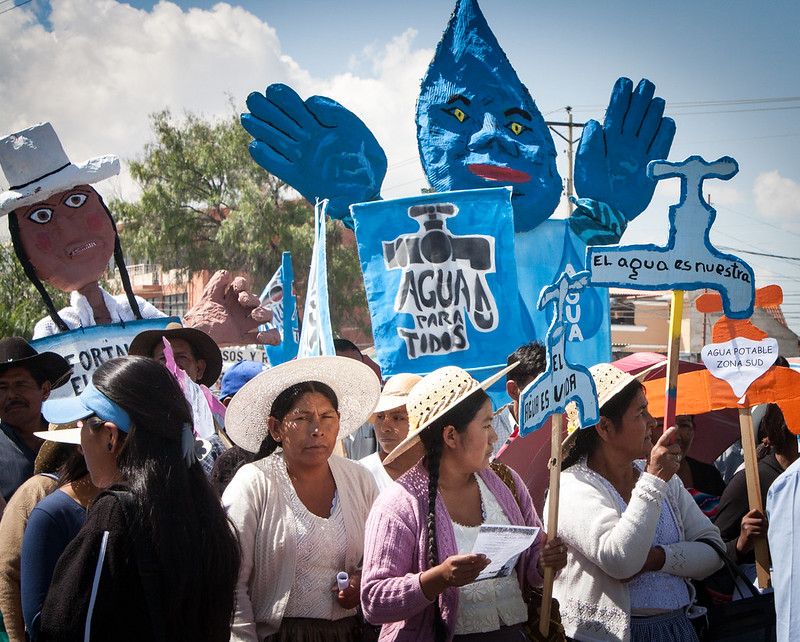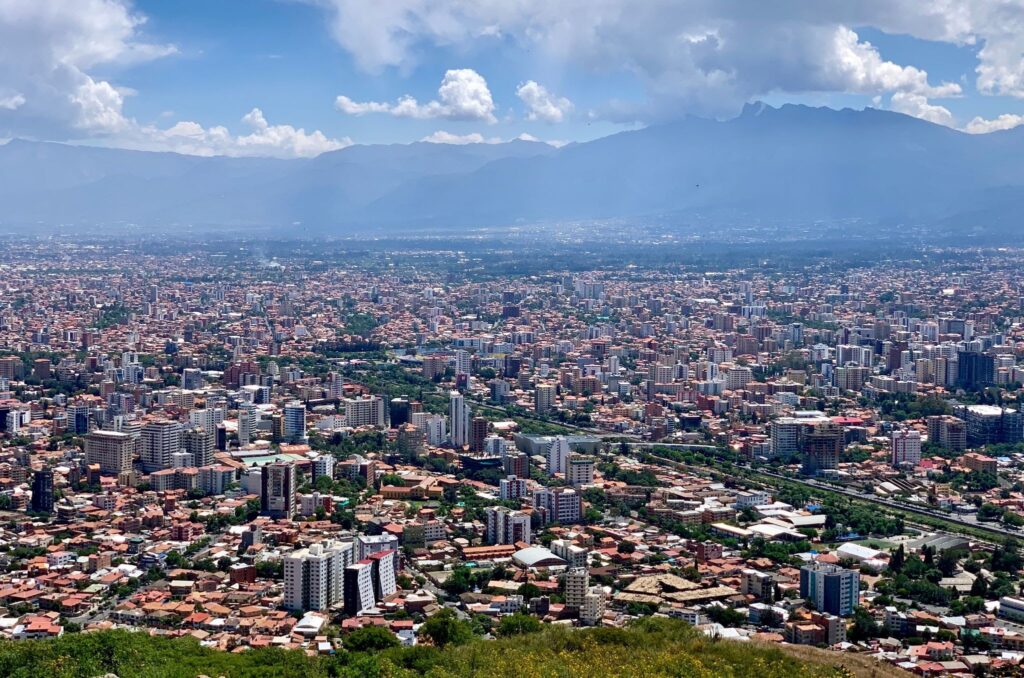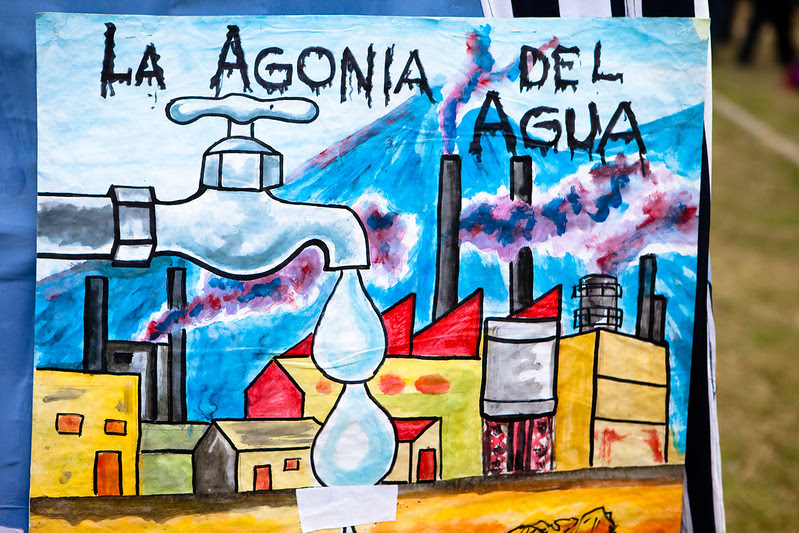International Water Infrastructure Privatization, Part I
In 1996, The World Bank offered a $14 million loan to Cochabamba, Bolivia to expand their water system, under the condition that they privatize their water company. The San Francisco corporate giant, Bechtel, took control of Cochabamba’s water, and city residents saw their water rates go up by an average of 50%. The people of Cochabamba and their rural neighbors protested for months, shutting down the city with strikes and blockades on three separate occasions. Bolivia’s president sent armed troops and suspended constitutional rights, but in April, 2000, Bechtel lost its foothold in Bolivia. Not much later, the markets for drinking water infrastructure became publicly traded with exchange traded funds, like the S&P Global Water Index Fund (CGW on the NYSE trading at $41.7) and AllianzGI Global Water Fund (another ETF), which traded on the NASDAQ under AW-TAX currently at $17.66 a share. Ultimately, the Bolivian water revolt has had tremendous impact around the world and inspired similar movements.


EJ Atlas Explanation on Cochabamba Water War
“In 1999 the US company Bechtel was granted the concession to manage water services in Cochabamba, Bolivia’s third largest city. The cost of water tripled and it became necessary to buy a license to access water resources and a licensing system for collecting rainwater was also introduced. After a year, 55 percent of local citizens still did not have access to water. In April 2000, hundreds of thousands marched on the streets of Cochabamba to protest against the Government, and forced it to revoke the Water Privatisation Law. The contract with the multinational company Bechtel was terminated and the water service concession re-advertised. The conflict, known as the Cochabamba Water War, became symbolic of the struggles fought to protect common rights, proving that popular participation could have a major influence on decision making in regard to the management of public services.”
Breakdown of the Cochabamba Water War provided by Environmental Justice Atlas here.



